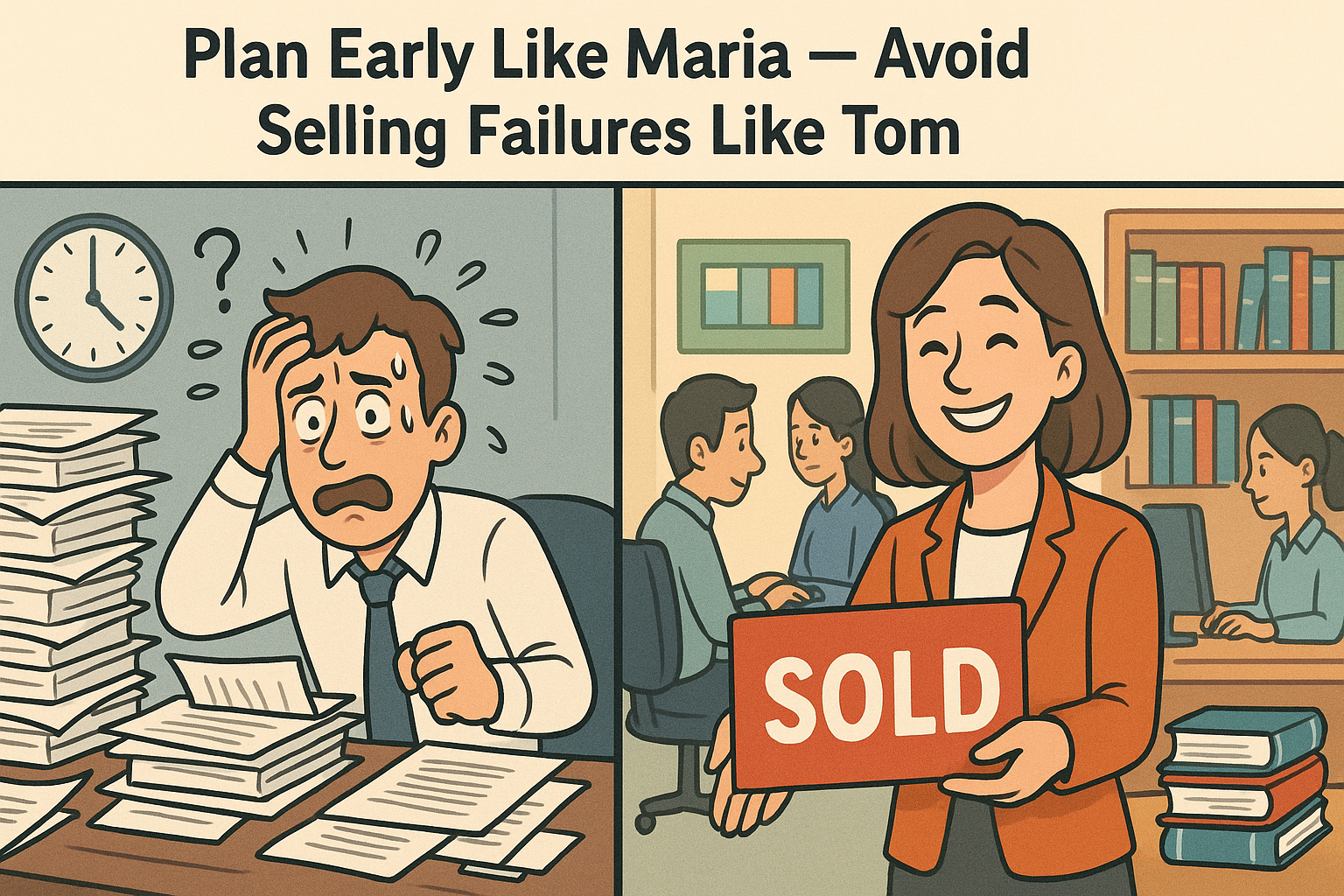Why Most Businesses Don't Sell and How to Fix It
I. Introduction
Did you know that only 20–30% of businesses listed for sale actually end up selling? For many business owners, this statistic comes as a surprise. After years—sometimes decades—of hard work, the assumption is often that selling the business will be a smooth and rewarding process. Yet, reality paints a different picture.
Selling a business is a complex transaction that demands strategic preparation, accurate valuation, and a clear understanding of buyer expectations. Owners often overlook the many variables involved, from financial documentation to operational independence, until it’s too late. In this article, we’ll explore why most businesses don't sell—and more importantly, how to fix it with actionable strategies.
II. Why Most Businesses Fail to Sell
Many businesses struggle to sell because of unrealistic expectations from owners. Business value is often clouded by emotional attachment rather than market-based reality. Sellers frequently overprice their businesses, expecting buyers to pay for potential rather than performance.
In addition, there's a lack of serious buyer interest, often due to poor marketing or vague listings that fail to communicate the business's strengths. Businesses that depend heavily on the owner, or that have legal or operational red flags, are unattractive to buyers. This includes undocumented income, employee issues, or unclear ownership structures.
Another critical factor is seller unpreparedness. Owners may not have a clear exit strategy, or they may resist delegating control—something buyers see as a red flag. Finally, market timing matters. Trying to sell during economic downturns or industry slumps can significantly reduce chances of success.
III. What Buyers Actually Want
To reverse these challenges, sellers must understand the buyer’s mindset. Buyers seek predictable income—they want assurance that the business will continue generating stable cash flow. If your revenue is seasonal or erratic, that’s a concern.
Second, they want systems and processes that are transferable. A business shouldn’t collapse the moment the owner leaves. This means documented operations, trained staff, and reliable suppliers are essential.
Additionally, buyers evaluate risk carefully. A clean legal structure, organized financials, and low reliance on the owner lower perceived risk. Most importantly, they look for growth potential. If your business shows signs it can scale—whether by expanding product lines, reaching new markets, or increasing efficiency—it becomes far more appealing.
IV. How to Make Your Business Sell-Ready
The best time to start planning your exit? Now. Ideally, business owners should begin preparing for a sale at least two years in advance. Early planning allows you to fix issues, improve operations, and increase the value of your business.
Step one: Think like a buyer. Objectively evaluate your business—would you buy it? Why or why not?
Step two: Ensure your financial records are clean, consistent, and accessible. Hire a professional accountant if needed.
Third, automate and delegate. A business overly reliant on its owner is hard to transfer. Build a team and document processes so the transition is smooth. Finally, work with a business broker or M&A advisor. These professionals can help market the business, vet buyers, and negotiate deals, increasing your chances of a successful sale.
V. Real-Life Lessons
Consider Tom, who ran a successful retail business but failed to sell because he didn’t plan an exit. His financials were handwritten, and he was the only decision-maker. Buyers walked away, unsure of how they’d take over.
Contrast that with Maria, who sold her digital marketing agency in under six months. She had clean books, trained staff, and automated systems. Most importantly, she began preparing two years before listing and hired a professional broker to navigate the process.
These stories show that transparency, documentation, and early preparation significantly impact the outcome.
VI. Final Thoughts and Action Plan
Most businesses don’t sell—but they can. The key lies in early, strategic planning, understanding what buyers want, and being realistic about your business’s value. If you’re considering selling your business in the future, start preparing now.
Document your systems, clean up your books, and delegate critical operations. Consider seeking professional help to guide you through the process. With the right preparation, your business can be part of the small percentage that sells successfully, giving you the financial and emotional reward you’ve earned.
FAQ
Why do so few businesses sell?
Because of poor preparation, unrealistic pricing, legal or operational red flags, and lack of buyer interest.How early should I start preparing to sell my business?
At least 1–2 years before listing your business.What’s the biggest red flag for buyers?
A business that depends entirely on the owner and lacks documented systems.Do I need a broker to sell my business?
Not always, but brokers can significantly improve your chances by marketing and negotiating effectively.How can I improve the value of my business before selling?
Improve profitability, document processes, train your team, and ensure clean financials.


